joint support
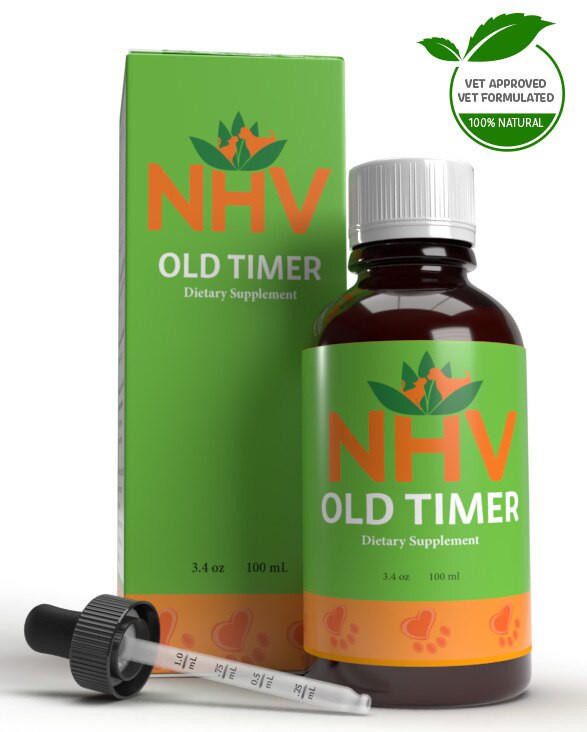
free shipping over $100 (USA & Canada)
1-877-937-4372 the pet expert hotline
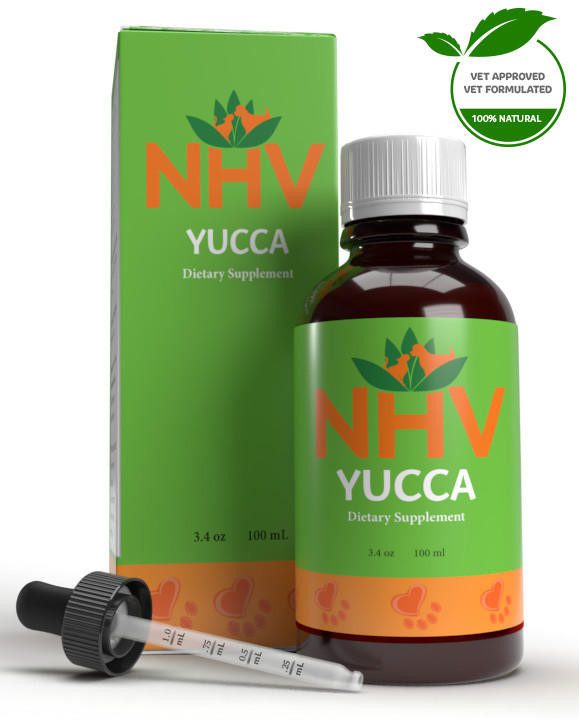
Discomfort Relief, Digestive Support, and Dog Appetite Booster

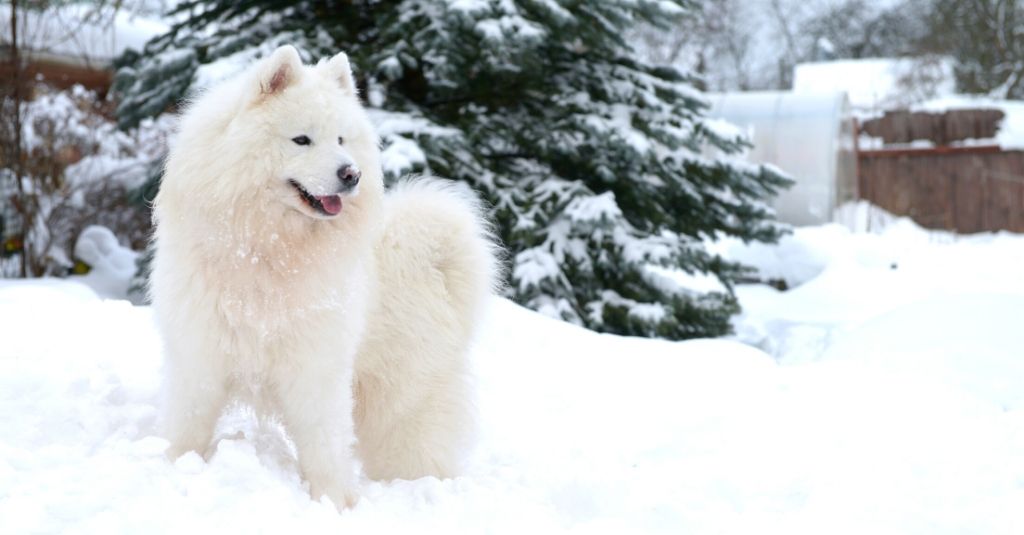
Clients often ask “How cold is too cold for dogs to be outside?” There is no simple answer to this. Every dog is different. Therefore it is essential to consider the following factors before you plan your dog’s winter adventures.
In this issue of Vet Tech Rounds, I will share the different factors that can influence how well your pup can tolerate the cold.
In general, larger dogs have a higher percentage of body fat, which helps to insulate from the cold. There are obvious exceptions to this, with breeds such as greyhounds and other sighthounds.
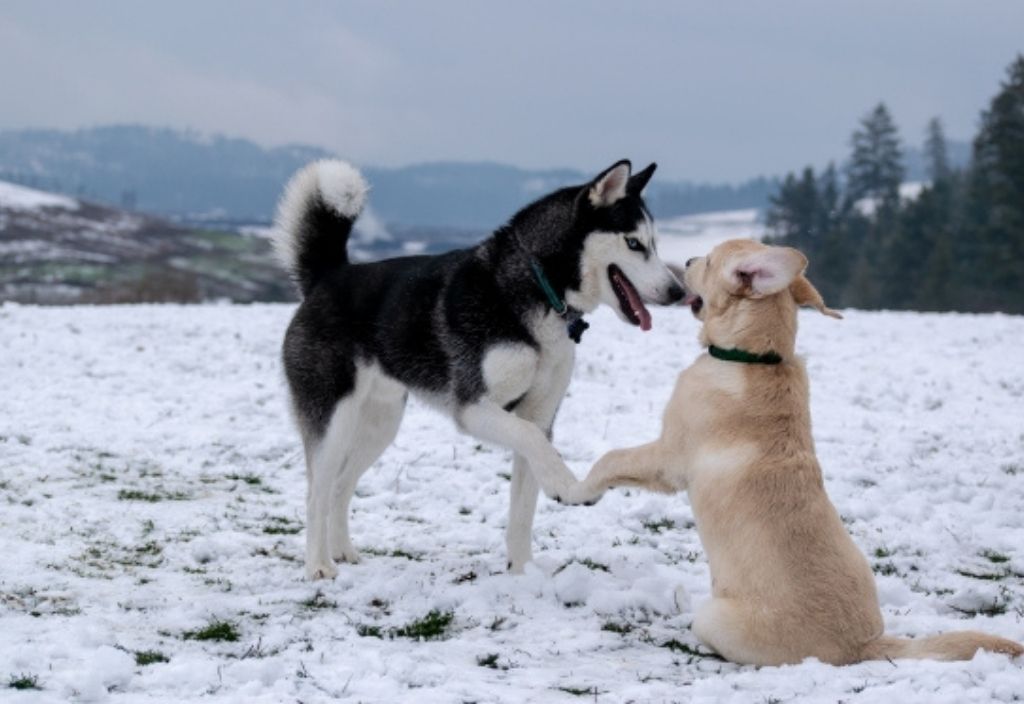
Hairless and smooth-coated dogs have much less protection from the elements vs. dogs with a thicker coat
Your pup’s coat type will also influence how well they tolerate the cold. There are a number of different coat types in dogs – Smooth coat, long coat, wire coat, curly coat, double coat, and hairless.
Hairless and smooth-coated dogs have much less protection from the elements vs. dogs with a thicker coat, such as a double coat. Smooth-coated dogs include:
A double coat is when a dog has a thicker outer layer of hair, with a soft, downy layer near the skin. Many of these breeds originate in cold climates and are very well equipped for the cold. Double coated dogs include:
Over time, dogs become used to certain climates. If you and your pup have moved from a warmer climate to a cold one, it may take some time to adjust to the new temperatures, even if he is a double-coated breed.
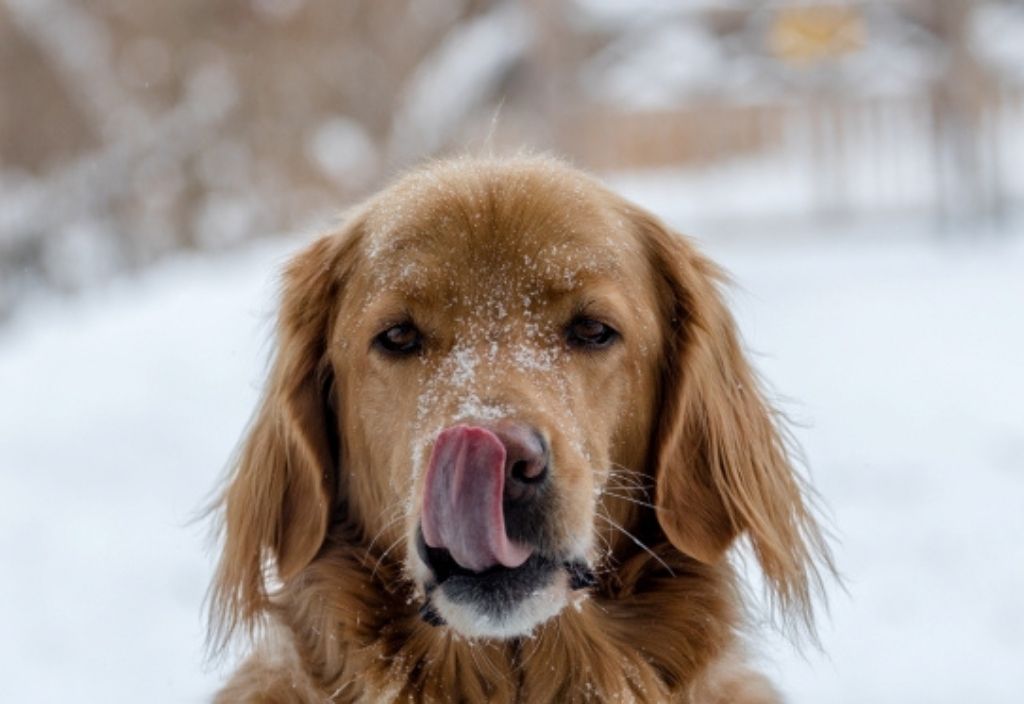
No dog should ever be left out in the cold without shelter. This includes large, double coated dogs.
Smaller dogs should be monitored at all times in the cold and should be brought in when they begin to show signs of discomfort. This may include shivering and reluctance to place their paws on the ground.
Smooth coated dogs often appreciate a coat or sweater in the winter months to help them with insulation. In wet weather, it is important that this garment be waterproof to avoid leaving moisture in contact with your dog’s skin.
In extreme temperatures, you may also consider a set of booties for your pup to protect their feet. Dogs’ feet are built to withstand colder temperatures than ours, but they can also reach their limit.
NHV Winter Essentials Kit includes three products that can significantly contribute to your dog’s health in the winter.
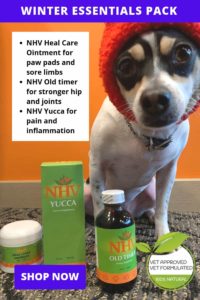
Yucca extract is known for its discomfort relieving and anti-inflammatory properties.
Old Timer is excellent support for the hip and joints. The name may suggest that it is for older pets, but it really is useful for pets of all ages in the winter. It helps support stiff joints and aids movement.
The ointment in this kit is especially useful for their paw pads that face some wear and tear from the snow, ice-salt, and dryness. You can even massage it gently on their sore limbs to relieve discomfort and promote recovery after outdoor activity.
If your dog loves to romp and play in the snow, they’re likely very comfortable. But don’t let them overdo it. If your pup is shivering and reluctant to walk around, they probably would rather cuddle up on the couch.
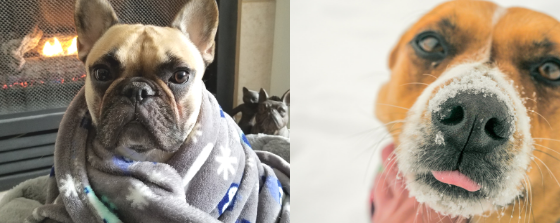
If you want to talk to a Pet Expert about your pet’s health, just send us your message here and we will be more than happy to help make winter a fun, safe, and healthy season for your pet.
joint support

Natural dog joint support to alleviate arthritis, muscle, and joint discomfort
buy 2 and save $3
3 month supply for a small to medium size pet
NHV’s Old Timer joint support for dogs provides your canine companion with natural support to help alleviate arthritis, muscle, and joint discomfort. Just one bottle contains a 100 day supply for a small-medium sized dog.


NHV’s Old Timer joint support for dogs provides your canine companion with natural support to help alleviate arthritis, muscle, and joint discomfort. Just one bottle contains a 100 day supply for a small-medium sized dog.

Getting older is never easy, especially for dogs. Arthritis is a degenerative disease that progresses with age. It is a debilitating condition that can lead to impaired mobility and even hip dysplasia in dogs.
Finding the right supplements for older dogs can be a challenge, but NHV’s supplements are safe to be given along with any vet prescribed medications. NHV Old Timer can be given to dogs of any age. In fact, we would recommend starting the Old Timer at mid-age even before severe arthritis develops, as a natural and effective proactive care regimen.
We also have a complete Rejuvenation Kit for arthritis and joint discomfort.
Just because your dog is getting older doesn’t mean playtime is over. Read how Snuku bounces back from arthritis with Old Timer dog joint support supplements.
If you have questions, you can ask an NHV expert because we are here to help give guidance and support so your precious pooch can jump for joy and raise the ruff!
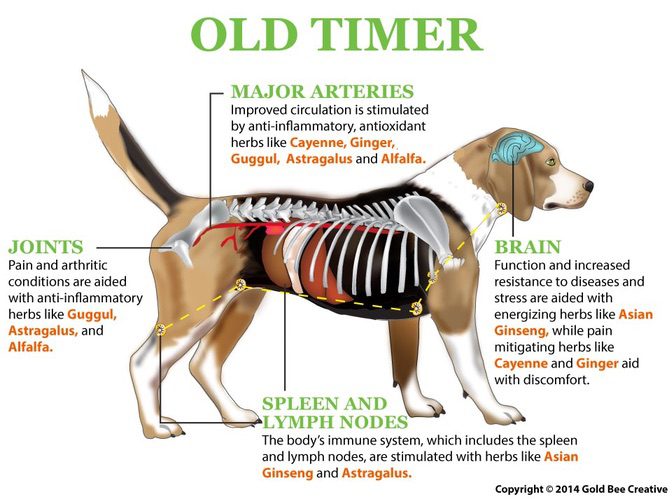
Six potent herbal ingredients will target the entire body to provide dogs support with joints, spleen, lymph nodes, major arteries.
Select your pet's weight to determine the correct dose.
To be taken twice daily. Determine your pet’s weight and then use the easy chart below to determine the correct dose. This is the minimum dosage.
Pet's Weight Dosage
0 - 15 lb = 0.5 ml
16 - 30 lb = 1.0 ml
31 - 45 lb = 1.5 ml
46 - 60 lb = 2.0 ml
61 - 75 lb = 2.5 ml
Over 75 lb = 3.0 ml
How to Administer
Shake well before use. The easiest method is to use the dropper provide and places the drops into your pet’s food or favorite treat. You can also use the dropper and squirt directly into the pet’s mouth.
Some pets can be finicky, if this occurs consider hiding the drops in foods most pet’s love such as fish, chicken or yogurt or a favorite treat. If your pet only eats dry food then soak a few kibbles at feeding time.
For Best Results
Herbal dietary supplements are beneficial to the health and wellbeing of your pet and are safe for long-term use. Every pet responds to natural herbal supplements differently, therefore it is important to be consistent and administer the product daily. Supplements generally take two to four weeks to take effect, however this will vary from one animal to the next.
Product Storage
All NHV Natural Pet Products are pure herbal extracts and contain no artificial additives, preservatives or coloring. Shelf life after opening is 6 months and must be refrigerated after opening.
Cautions and Contraindications
Do not use Old Timer in pregnant or nursing animals. Should be used in moderation in cases of sensitive digestive tract. Speak to your vet before using our products. A second visit is recommended if your pet’s condition does not improve, or deteriorates after continued use of the supplements.
All information provided by NHV Natural Pet Products is for educational purposes only.
Getting older is never easy, especially for dogs. Arthritis is a degenerative disease that progresses with age. It is a debilitating condition that can lead to impaired mobility and even hip dysplasia in dogs.
Finding the right supplements for older dogs can be a challenge, but NHV’s supplements are safe to be given along with any vet prescribed medications. NHV Old Timer can be given to dogs of any age. In fact, we would recommend starting the Old Timer at mid-age even before severe arthritis develops, as a natural and effective proactive care regimen.
We also have a complete Rejuvenation Kit for arthritis and joint discomfort.
Just because your dog is getting older doesn’t mean playtime is over. Read how Snuku bounces back from arthritis with Old Timer dog joint support supplements.
If you have questions, you can ask an NHV expert because we are here to help give guidance and support so your precious pooch can jump for joy and raise the ruff!

Six potent herbal ingredients will target the entire body to provide dogs support with joints, spleen, lymph nodes, major arteries.
Select your pet's weight to determine the correct dose.
To be taken twice daily. Determine your pet’s weight and then use the easy chart below to determine the correct dose. This is the minimum dosage.
Pet's Weight Dosage
0 - 15 lb = 0.5 ml
16 - 30 lb = 1.0 ml
31 - 45 lb = 1.5 ml
46 - 60 lb = 2.0 ml
61 - 75 lb = 2.5 ml
Over 75 lb = 3.0 ml
How to Administer
Shake well before use. The easiest method is to use the dropper provide and places the drops into your pet’s food or favorite treat. You can also use the dropper and squirt directly into the pet’s mouth.
Some pets can be finicky, if this occurs consider hiding the drops in foods most pet’s love such as fish, chicken or yogurt or a favorite treat. If your pet only eats dry food then soak a few kibbles at feeding time.
For Best Results
Herbal dietary supplements are beneficial to the health and wellbeing of your pet and are safe for long-term use. Every pet responds to natural herbal supplements differently, therefore it is important to be consistent and administer the product daily. Supplements generally take two to four weeks to take effect, however this will vary from one animal to the next.
Product Storage
All NHV Natural Pet Products are pure herbal extracts and contain no artificial additives, preservatives or coloring. Shelf life after opening is 6 months and must be refrigerated after opening.
Cautions and Contraindications
Do not use Old Timer in pregnant or nursing animals. Should be used in moderation in cases of sensitive digestive tract. Speak to your vet before using our products. A second visit is recommended if your pet’s condition does not improve, or deteriorates after continued use of the supplements.
All information provided by NHV Natural Pet Products is for educational purposes only.
skin support
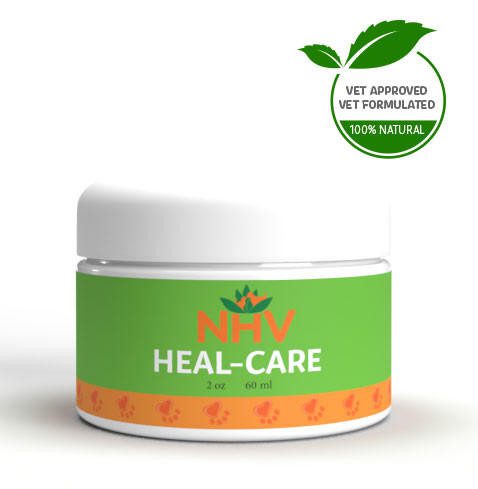
All-Natural Dog Paw Pad Ointment & Muscle Aid
buy 2 and save $3
Most dogs love to run and play in the great outdoors, and many pups would be over the moon playing fetch for hours on end. But sometimes, they don't even notice that they are damaging their little toe beans because they are having too much fun! NHV Heal Care is an all-around soothing ointment for dog paw pads, sore muscles and even dry skin on their sweet little noses.

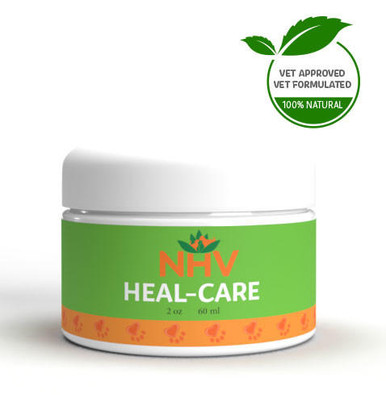
Most dogs love to run and play in the great outdoors, and many pups would be over the moon playing fetch for hours on end. But sometimes, they don't even notice that they are damaging their little toe beans because they are having too much fun! NHV Heal Care is an all-around soothing ointment for dog paw pads, sore muscles and even dry skin on their sweet little noses.

Dog Paw Pad Ointment for Burn Support
Paw pad injuries due to over-exercise are common injuries for active pups, especially on hot summer days. Running back and forth on rough surfaces like concrete, pavement, or gravel may cause tenderness, blisters, burns, and possible peeling in the pad skin. As a rule of thumb, if the surface is too hot to put the back of your hand onto it, then it isn't safe for your little one to be walking on it either. Dog paw pads are pretty tough, but they aren't meant for running on such hard surfaces for long periods of time. Don't feel bad if your fluffy friend has a paw pad injury and you didn’t notice right away because there may not be any symptoms until they are settling down at home later. Just like summer, winter can present some risks as well. It is easy for your pup's paw pads to get dehydrated, dry or cracked with dry, cold weather. The iconic blue/green salt that is sprinkled onto sideways and walkways can definitely cause ouchies in your furkiddo's paws. To avoid paw pad injuries, consider protective accessories like booties or shoes for your furbaby. Shorter walks, limiting time on hot surfaces and using a topical ointment for dog paws are other ways to prevent paw pad injuries.
How NHV’s Dog Paw Ointment Supports Paw Pad Injuries and More
Paw pad injuries can be minor scratches but sometimes the pads are so badly damaged that the surface of the skin begins to blister and peel away from the foot. These injuries can take quite a while to heal and cause a lot of pain and discomfort for your furkiddo. For more severe injuries, vet-prescribed antibiotics may be required. For less severe burns and scrapes, a topical ointment for dog paws like NHV Heal Care can help soothe inflamed skin and help decrease the risk of infection - your pup's paws aren't always the cleanest so they can be at a higher risk for a bacterial or fungal (yeast) infection.
Heal care for dogs contains ingredients like Arnica and St. John's Wort which are beneficial for a variety of issues from burnt paw pads to achy joints. Arnica is known for its ability to help sprains and joint discomfort by dilating blood vessels, increasing circulation to the affected area and enhancing recovery. St. John’s Wort is a cooling herb that has traditionally been used for reducing inflammation and promoting healing from injuries such as burns, bruises, sores, cramps, sprains and discomfort caused by nerve damage.
Promote Healing and Provide Relief with NHV’s Natural Pet Products
It’s great to know that there are ways to support your furkiddo’s health naturally! All NHV products use only the finest organic, wild-crafted ingredients and formulated by the combined efforts of a master herbalist and veterinarian with 50+ years of experience. If you have any questions about paw pad health or need any holistic advice, please get in touch with an NHV pet expert using the button below.
Made with the finest, organically grown, or ethically harvested herbs. Made specifically for pets, vet-formulated and vet approved.
How to Administer
Topical ointment: Clean and dry paw pads. Apply to affected area 3 to 4 times per day until healed. It may be necessary to use booties or wrap the paw with gauze dressing so that your pet does not lick the ointment.
Caution
Do not apply on open or bleeding wounds. Heal Care ointment contains arnica which may cause a skin allergy on some very sensitive pet’s. Try the product on a hairless part of the body first to test for sensitivity
Dog Paw Pad Ointment for Burn Support
Paw pad injuries due to over-exercise are common injuries for active pups, especially on hot summer days. Running back and forth on rough surfaces like concrete, pavement, or gravel may cause tenderness, blisters, burns, and possible peeling in the pad skin. As a rule of thumb, if the surface is too hot to put the back of your hand onto it, then it isn't safe for your little one to be walking on it either. Dog paw pads are pretty tough, but they aren't meant for running on such hard surfaces for long periods of time. Don't feel bad if your fluffy friend has a paw pad injury and you didn’t notice right away because there may not be any symptoms until they are settling down at home later. Just like summer, winter can present some risks as well. It is easy for your pup's paw pads to get dehydrated, dry or cracked with dry, cold weather. The iconic blue/green salt that is sprinkled onto sideways and walkways can definitely cause ouchies in your furkiddo's paws. To avoid paw pad injuries, consider protective accessories like booties or shoes for your furbaby. Shorter walks, limiting time on hot surfaces and using a topical ointment for dog paws are other ways to prevent paw pad injuries.
How NHV’s Dog Paw Ointment Supports Paw Pad Injuries and More
Paw pad injuries can be minor scratches but sometimes the pads are so badly damaged that the surface of the skin begins to blister and peel away from the foot. These injuries can take quite a while to heal and cause a lot of pain and discomfort for your furkiddo. For more severe injuries, vet-prescribed antibiotics may be required. For less severe burns and scrapes, a topical ointment for dog paws like NHV Heal Care can help soothe inflamed skin and help decrease the risk of infection - your pup's paws aren't always the cleanest so they can be at a higher risk for a bacterial or fungal (yeast) infection.
Heal care for dogs contains ingredients like Arnica and St. John's Wort which are beneficial for a variety of issues from burnt paw pads to achy joints. Arnica is known for its ability to help sprains and joint discomfort by dilating blood vessels, increasing circulation to the affected area and enhancing recovery. St. John’s Wort is a cooling herb that has traditionally been used for reducing inflammation and promoting healing from injuries such as burns, bruises, sores, cramps, sprains and discomfort caused by nerve damage.
Promote Healing and Provide Relief with NHV’s Natural Pet Products
It’s great to know that there are ways to support your furkiddo’s health naturally! All NHV products use only the finest organic, wild-crafted ingredients and formulated by the combined efforts of a master herbalist and veterinarian with 50+ years of experience. If you have any questions about paw pad health or need any holistic advice, please get in touch with an NHV pet expert using the button below.
Made with the finest, organically grown, or ethically harvested herbs. Made specifically for pets, vet-formulated and vet approved.
How to Administer
Topical ointment: Clean and dry paw pads. Apply to affected area 3 to 4 times per day until healed. It may be necessary to use booties or wrap the paw with gauze dressing so that your pet does not lick the ointment.
Caution
Do not apply on open or bleeding wounds. Heal Care ointment contains arnica which may cause a skin allergy on some very sensitive pet’s. Try the product on a hairless part of the body first to test for sensitivity
discomfort support

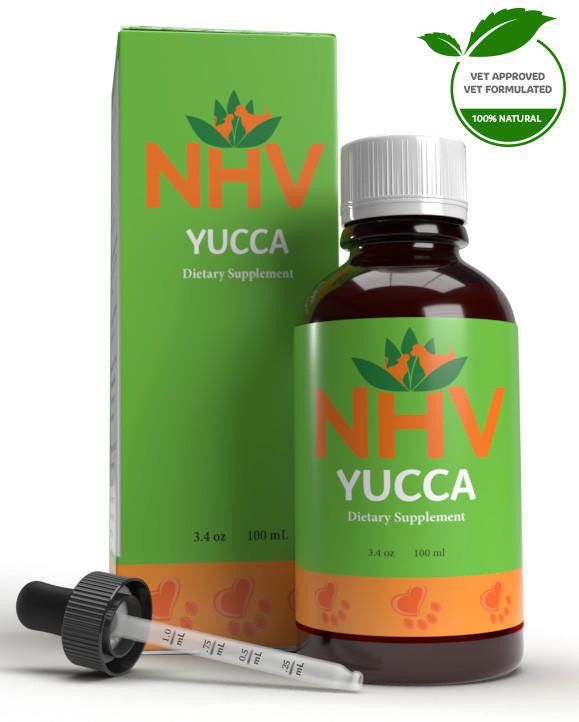
Support for Discomfort and Appetite Stimulant
buy 2 and save $3
3 month supply for a small to medium size
NHV Yucca is used for cats as a supplement to provide nutrients, and may be helpful for discomfort, inflammation, and to increase or balance the appetite.


NHV Yucca is used for cats as a supplement to provide nutrients, and may be helpful for discomfort, inflammation, and to increase or balance the appetite.

Yucca is used in cat food as well as food for other animals around the world. Its root is a highly nutritious herb that’s rich in vitamin C, beta-carotene, B vitamins, magnesium, iron, calcium, manganese, protein, niacin, and phosphorus.
Yucca contains two very beneficial compounds: sarsasapogenin and smilagenin. These two compounds work on the mucous membranes of the small intestine. These compounds help with the penetration and absorption of minerals and vitamins. Sarsasapogenin and smilagenin are known as steroidal saponins (phytosterols) which act as precursors to corticosteroids produced naturally by the body.
Steroidal saponins support the immune function of the body while stimulating and supporting the production of its own corticosteroids and corticosteroid–related hormones. Due to this action, studies conducted on Yucca have shown that it may be beneficial and effective for discomfort relief and inflammation in conditions such as arthritis. Yucca for cats may also be a natural appetite stimulant and may also help reduce the production of urease, which contributes to the unpleasant odors of urine and feces in some cats.
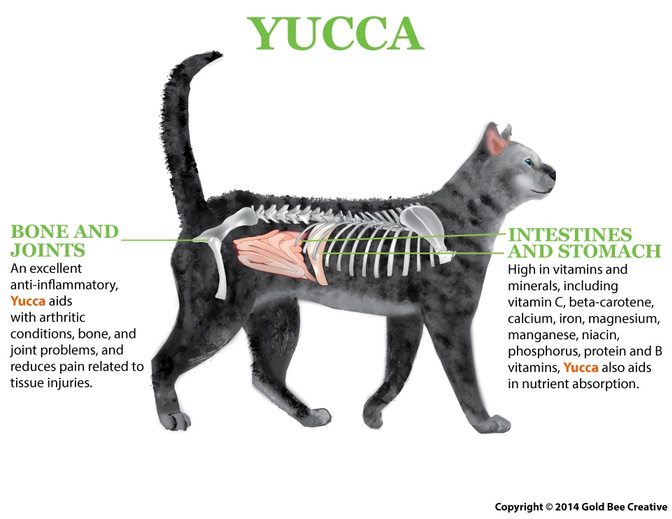
Yucca - Commonly used for supporting arthritis, as an anti-inflammatory, nutritive, antitumor, and digestive supplement.
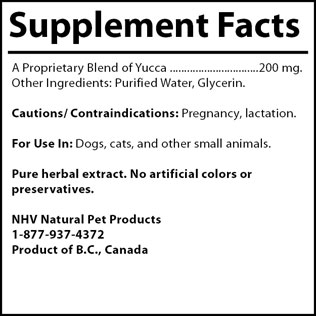
Select your pet's weight to determine the correct dose.
To be taken twice daily. Determine your pet’s weight and then use the easy chart below to determine the correct dose. This is the minimum dosage.
Pet's Weight Dosage
0 - 15 lb = 0.5 ml
16 - 30 lb = 1.0 ml
31 - 45 lb = 1.5 ml
46 - 60 lb = 2.0 ml
61 - 75 lb = 2.5 ml
Over 75 lb = 3.0 ml
How to Administer: Shake well before use. The easiest method is to use the dropper provided and place the drops into your pet’s food or favorite treat. You can also use the dropper and squirt directly into the pet’s mouth. Some pets can be finicky, if this occurs consider hiding the drops in foods most pet’s love such as fish, chicken, yogurt, or a favorite treat. If your pet only eats dry food then soak a few kibbles at feeding time.
For Best Results: Herbal dietary supplements are beneficial to the health and well-being of your pet and are safe for long-term use. Every pet responds to natural herbal supplements differently, therefore it is important to be consistent and administer the product daily. Supplements generally take two to four weeks to take effect, however this will vary from one animal to the next.
Product Storage:
All NHV Natural Pet Products are pure herbal extracts and contain no artificial additives, preservatives or coloring. Shelf life after opening is 6 months and must be refrigerated after opening.
Cautions and Contraindications
Do not use Yucca in pregnant or nursing animals.
Speak to your vet before using our products. A second visit is recommended if your pet’s condition does not improve, or deteriorates after continued use of the supplements. All information provided by NHV Natural Pet Products is for educational purposes only.
Yucca is used in cat food as well as food for other animals around the world. Its root is a highly nutritious herb that’s rich in vitamin C, beta-carotene, B vitamins, magnesium, iron, calcium, manganese, protein, niacin, and phosphorus.
Yucca contains two very beneficial compounds: sarsasapogenin and smilagenin. These two compounds work on the mucous membranes of the small intestine. These compounds help with the penetration and absorption of minerals and vitamins. Sarsasapogenin and smilagenin are known as steroidal saponins (phytosterols) which act as precursors to corticosteroids produced naturally by the body.
Steroidal saponins support the immune function of the body while stimulating and supporting the production of its own corticosteroids and corticosteroid–related hormones. Due to this action, studies conducted on Yucca have shown that it may be beneficial and effective for discomfort relief and inflammation in conditions such as arthritis. Yucca for cats may also be a natural appetite stimulant and may also help reduce the production of urease, which contributes to the unpleasant odors of urine and feces in some cats.

Yucca - Commonly used for supporting arthritis, as an anti-inflammatory, nutritive, antitumor, and digestive supplement.

Select your pet's weight to determine the correct dose.
To be taken twice daily. Determine your pet’s weight and then use the easy chart below to determine the correct dose. This is the minimum dosage.
Pet's Weight Dosage
0 - 15 lb = 0.5 ml
16 - 30 lb = 1.0 ml
31 - 45 lb = 1.5 ml
46 - 60 lb = 2.0 ml
61 - 75 lb = 2.5 ml
Over 75 lb = 3.0 ml
How to Administer: Shake well before use. The easiest method is to use the dropper provided and place the drops into your pet’s food or favorite treat. You can also use the dropper and squirt directly into the pet’s mouth. Some pets can be finicky, if this occurs consider hiding the drops in foods most pet’s love such as fish, chicken, yogurt, or a favorite treat. If your pet only eats dry food then soak a few kibbles at feeding time.
For Best Results: Herbal dietary supplements are beneficial to the health and well-being of your pet and are safe for long-term use. Every pet responds to natural herbal supplements differently, therefore it is important to be consistent and administer the product daily. Supplements generally take two to four weeks to take effect, however this will vary from one animal to the next.
Product Storage:
All NHV Natural Pet Products are pure herbal extracts and contain no artificial additives, preservatives or coloring. Shelf life after opening is 6 months and must be refrigerated after opening.
Cautions and Contraindications
Do not use Yucca in pregnant or nursing animals.
Speak to your vet before using our products. A second visit is recommended if your pet’s condition does not improve, or deteriorates after continued use of the supplements. All information provided by NHV Natural Pet Products is for educational purposes only.
Published: January 18, 2019